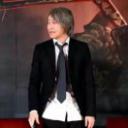情态动词与中考
时间:2022-08-02 05:41:56
情态动词用来表示说话人对某一动作或状态的态度或主观设想。它本身有词义,但没有人称和数的变化,也不能单独作谓语,应和后面的动词原形一起构成谓语。常用的情态动词有can,may,must,will,shall,should,would,need,dare等。本文以2007年全国部分省市中考试题为例,对情态动词的考查热点作一分析。
一、考查must的用法
1. must表示义务。
这样用的must意为“必须”,“应该”。例如:
When traffic lights are red,we____ stop and wait.
A. may B. canC. must D. might(南京市)
(Key:C)
在使用表示这种含义的must时,我们需要注意以下两点:
(1) must和have to之间的区别
must表示说话人主观上认为做某事是“必须”的,而have to则表示说话人认为客观环境迫使某人“不得不”做某事。例如:
1. ―Do I have to come back tomorrow?
―Yes,you ____.
A. can B. mayC. must D. should(武汉市)
2. ―I can’t stop smoking,doctor.
―For your health,I’m afraid you____ .
A. may B. need
C. have to D. must(辽宁省十二市)
(Key:1. C 2. C)
(2) mustn’t和needn’t之间的区别
mustn’t表示“禁止”之意,即不许对方做某事,而needn’t则表示“不必,没有必要”,因此回答must开头的一般疑问句时,否定的答语中用needn’t,不用mustn’t。 例如:
1. ―Must I finish the work today,Mom?
―No,you____ . You can finish it tomorrow.
A. mustn’t B. can’t
C. shouldn’t D. needn’t(河北省)
2. ―Must I give the dictionary back to the library now?
―No,you____ . You can____ it for another two weeks.
A. needn’t,borrow B. needn’t,keep
C. mustn’t,lend D. mustn’t,keep(潍坊市)
3. ―Must I leave now?
―No,you____ .
A. mustn’t B. needn’t
C. don’t D. won’t(甘肃省六市)
4. ―I didn’t pass the math test. I think I have spent too must time playing computer games recently.
―I agree. You____ play like that any more.
A. needn’t B. mustn’t
C. may not D. wouldn’t(河南省)
(Key:1. D 2. B 3. B 4. B)
2. must表示推测。
这样用的must意为“一定,肯定”,即说话人认为某事“肯定”会发生,通常出现在肯定句中。例如:
―Jill looks so painful,there____ be something wrong with her.
―Oh dear!We’d better take her to the nearest hospital at once.
A. canB. shouldC. could D. must(宁波市)
(Key:D)
二、考查can的用法
1. can表示能力。
这样用的can意为“能”,“会”,其否定式为can’t,表示“不能”。 can的过去式为could。 例如:
1. ―Mary,____ you speak Chinese?
―Yes,only a little.
A. mustB. needC. may D. can(北京市)
2. People____ breathe when they are under water.
A. can’tB. mustn’tC. shouldn’tD. needn’t(沈阳市)
(Key:1. D 2. A)
2. can表示推测。
这样用的can意为“可能”,即说话人认为某事“有可能”会发生,通常用于疑问句和否定句中。例如:
1. ―Look at the boy running on the ground. Is it Davis?
―It____ be him. I saw him go to the teacher’s office just now.
A. mustB can’tC. could D. might(黄冈市)
2. ―How wonderfully Jim is swimming in the pool.
―It____ be Jim. He is ill in bed now.
A. needn’t B. mustn’tC. can’t(黑龙江省)
3. ―Listen!Is Tom singing in the classroom?
―No. It____ be Tom. He has gone to Paris.
A. may not B. needn’tC. can’t(长沙市)
4. ―Bill,is the pink umbrella Anna’s?
―No,it____ be hers. Hers is purple.
A. might B. must C. can’t(临汾市)
5. ―David,is that man your head teacher?
―It____ be him. He’s the tallest in our school.
A. mustn’t B. can’tC. needn’tD. won’t(威海市)
6. ―Do you know where David is?I couldn’t find him anywhere.
―Well. He____ have gone far. His coat’s still here.
A. shouldn’t B. mustn’tC. can’t D. wouldn’t(包头市)
7. ―Who is the teacher over there?Is it our English teacher?
―No,it____ be our English teacher. It____ be our Chinese teacher.
A. mustn’t; must B. can’t; must
C. can’t; can D. mustn’t; can(呼和浩特市)
(Key:1. B 2. C 3. C 4. C 5. B 6. C 7. B)
3. can/could表示请求或许可。
这样用的can和could都表示现在时间,用could比用can显得语气更加委婉客气。回答“Could I (you) ...?”这样的疑问句时,肯定的答语中用can,不用could。 例如:
―Could I borrow your dictionary?
―Of course you____ .
A. can B. mustC. should D. will(陕西省)
(Key:A)
三、考查may的用法
1. may表示请求或许可。
这样用的may表示“可以”的意思,主语常常为第一人称I,构成“May I ...?”句式。回答这样的疑问句,肯定答语用“Yes,you may.”或“Yes,please.”等,否定答语用“No,you can’t.”,不用“No,you may not.”。 例如:
John,you needn’t do your work today,you____ do it tomorrow if you’re tired.
A. must B. may C. can’t(山西省)
(Key:B)
2. may表示可能性。
这样用的may意为“也许”,“可能”,通常用于肯定句中。例如:
―Where is Xiao Ling?
―She____ in her bedroom,but I am not sure.
A. must be B. can’t be
C. maybe D. may be(宁夏回族自治区)
(Key:D)
四、考查need的用法
need作情态动词时,意为“需要”,常常用于否定句和疑问句中。例如:
1. ―May I do the rest of the work tomorrow?
―Yes,of course. You____ finish it today.
A. must B. mustn’t C. needn’t(成都市)
2. You____ do it if you really don’t want to.
A. needn’t B. mustn’t
C. can’t D. couldn’t(云南省)
(Key:1. C 2. A)
五、考查should 的用法
should意为“应该;应当”。例如:
Schools____ allow students at least one hour a day for sports.
A. would B. might
C. should D. could(安徽省)
(Key:C)
[小试牛刀]
1. You____ be careful with fire when you have a picnic in the forest. It’s too dangerous.
A. will B. must C. can D. may
2. I’m sorry. I____ go now. My father told me on the phone that my mother was ill.
A. can B. may C. have to D. think
3. No matter who wants to come in,he____ knock at the door first.
A. can B. can’t C. must D. mustn’t
4. ―____ I borrow your MP3?
―Sure. Here you are.
A. May B. Should C. Must D. Would
5. ―May I go surfing alone this afternoon,Dad?
―No,you____ . It’s dangerous.
A. may not B. can’t C. needn’t D. don’t
6. ―Where’s Lucy?
―I am not sure. She____ in the school library.
A. maybe B. must be C. may be D. will be
7. You____ to the meeting this afternoon if you have something important to do.
A. needn’t to come B. don’t need come
C. don’t need coming D. needn’t come
8. We____ keep the traffic law and learn how to protect ourselves.
A. may B. should C. can D. need
9. ―Listen!Helen is singing in the next room.
―It____ be Helen. She has gone to Beijing.
A. can’t B. mustn’t C. may D. should
10.―Could I take this seat?
―Yes,you____ .
A. could B. can C. must D. need
Key:1-5 BCCAB 6-10 CDBAB
